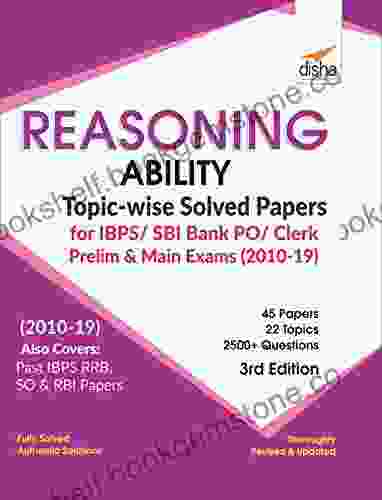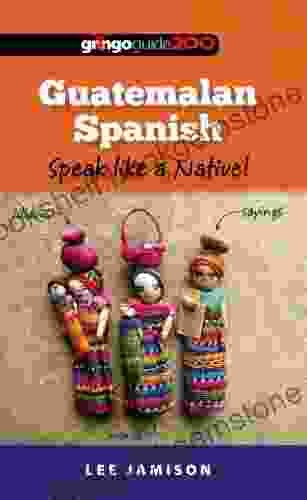Using Qualitative Methods to Answer Your Research Question

4.1 out of 5
| Language | : | English |
| File size | : | 1407 KB |
| Text-to-Speech | : | Enabled |
| Screen Reader | : | Supported |
| Enhanced typesetting | : | Enabled |
| Word Wise | : | Enabled |
| Print length | : | 205 pages |
In the realm of research, qualitative methods offer a powerful lens through which researchers can explore and understand complex human phenomena. Unlike quantitative methods, which focus on numerical data and statistical analysis, qualitative methods prioritize in-depth understanding, rich descriptions, and the exploration of meanings and perspectives. For researchers seeking to answer questions that delve into the intricacies of human experience, qualitative methods provide an invaluable toolkit.
Types of Qualitative Research Methods
Qualitative research encompasses a diverse range of methods, each with its own strengths and applications. Some of the most commonly used methods include:
- Interviews: In-depth conversations between the researcher and participants, allowing for the exploration of individual perspectives, experiences, and beliefs.
- Focus groups: Guided discussions with a small group of participants, facilitating collective exploration and the emergence of group dynamics.
- Observation: Direct observation of participants in their natural settings, providing insights into their behaviors, interactions, and environments.
- Document analysis: Examination of written or visual materials to uncover meanings, patterns, and historical contexts.
- Ethnography: Immersive research involving prolonged fieldwork within a particular cultural or social setting, providing a comprehensive understanding of its norms, values, and practices.
Choosing the Right Method
Selecting the appropriate qualitative method for your research question requires careful consideration. Factors to consider include:
- Research question: The method should align with the specific question you are seeking to answer.
- Data collection setting: The method should be feasible and ethical in the context where you will be collecting data.
- Participant characteristics: The method should be suitable for the target population you are studying.
- Researcher's skills and experience: The researcher should have the necessary skills and training to conduct the chosen method effectively.
Data Collection and Analysis
Qualitative data collection involves gathering rich, detailed information through various methods such as entrevistas, focus groups, or observations. The researcher's role is active and involves actively engaging with participants, probing for deeper understanding, and capturing their perspectives.
Data analysis in qualitative research is an iterative and interpretive process. The researcher engages in close reading, coding, and thematic analysis to identify patterns, themes, and meaningful insights. The goal is to develop a comprehensive understanding of the data, capturing the nuances and complexities of human experiences.
Validity and Reliability
Establishing validity and reliability is crucial in qualitative research. Validity refers to the accuracy and truthfulness of the findings, while reliability assesses the consistency and trustworthiness of the research process. To ensure validity, researchers employ triangulation, member checking, and rigorous data analysis procedures. Reliability is enhanced through clear documentation, transparency in data collection and analysis, and peer review.
Advantages of Qualitative Methods
Qualitative methods offer several key advantages:
- In-depth understanding: Qualitative methods allow researchers to gain a deep understanding of complex phenomena, exploring the nuances and meanings associated with human experiences.
- Contextualization: Qualitative research considers the context in which experiences occur, providing a holistic understanding of the factors that shape human behavior.
- Participant perspectives: Qualitative methods prioritize the voices and perspectives of participants, giving marginalized or underrepresented groups a platform to share their experiences.
- Exploratory nature: Qualitative methods are well-suited for exploratory research, allowing researchers to gain insights into new and emerging areas of inquiry.
Disadvantages of Qualitative Methods
Qualitative methods also have some limitations:
- Generalizability: Findings from qualitative research may not be generalizable to larger populations, as they are based on a limited number of participants.
- Researcher bias: The researcher's own biases and interpretations can influence the data collection and analysis process.
- Time-consuming: Qualitative research can be time-consuming, as it involves in-depth data collection and analysis.
Qualitative research methods provide a valuable approach for researchers seeking to explore complex human phenomena. By embracing in-depth understanding, contextualization, and participant perspectives, qualitative methods offer a unique lens through which to answer research questions and gain deeper insights into the human experience. While they have limitations, the advantages of qualitative methods make them an essential tool in the researcher's toolkit.
As you embark on your research journey, carefully consider the appropriateness of qualitative methods for your research question. With thoughtful planning, rigorous data collection, and insightful analysis, you can harness the power of qualitative research to make meaningful contributions to your field of study.
4.1 out of 5
| Language | : | English |
| File size | : | 1407 KB |
| Text-to-Speech | : | Enabled |
| Screen Reader | : | Supported |
| Enhanced typesetting | : | Enabled |
| Word Wise | : | Enabled |
| Print length | : | 205 pages |
Do you want to contribute by writing guest posts on this blog?
Please contact us and send us a resume of previous articles that you have written.
 Best Book
Best Book Page Flip
Page Flip Bookshelf
Bookshelf Literary loom
Literary loom Chapter
Chapter Bookish
Bookish PageTurner
PageTurner Bibliophile
Bibliophile Story
Story Inkwell
Inkwell Bookworm
Bookworm Labyrinth
Labyrinth Plot Twist
Plot Twist Prose
Prose Paperback
Paperback Storyteller
Storyteller Sanctuary
Sanctuary Fiction
Fiction Reading
Reading Chronicle
Chronicle Read
Read Gary Robert Muschla
Gary Robert Muschla Bruce Boudreau
Bruce Boudreau Gail Fay
Gail Fay John Hodgman
John Hodgman Robin Hobb
Robin Hobb Tommy Xiao Wan
Tommy Xiao Wan John Morrison
John Morrison Richard Bronson
Richard Bronson Ed Stafford
Ed Stafford Joshua Obanijesu
Joshua Obanijesu Tony Burton
Tony Burton Stephen Haddelsey
Stephen Haddelsey Kayla Chalko
Kayla Chalko W Michael Kelley
W Michael Kelley Jane Bottomley
Jane Bottomley Barry Broadfoot
Barry Broadfoot Martin J Pring
Martin J Pring Bryan Ethier
Bryan Ethier Peter Barber
Peter Barber Pati Jinich
Pati Jinich Tracy Owens
Tracy Owens Andy Fine
Andy Fine Mario Rizzi
Mario Rizzi Laurie Frankel
Laurie Frankel Sue Tyson Ward
Sue Tyson Ward Jon C Stott
Jon C Stott Christine A Smyczynski
Christine A Smyczynski Lila Z Rose
Lila Z Rose Russell Blake
Russell Blake Corine Gantz
Corine Gantz Ari Mennander
Ari Mennander Stephanie Saldana
Stephanie Saldana Brandon Royal
Brandon Royal William Least Heat Moon
William Least Heat Moon Beth Bartolini Salimbeni
Beth Bartolini Salimbeni Shirley J Shepherd
Shirley J Shepherd Doug Hall
Doug Hall Cyprian Mendonca
Cyprian Mendonca Damion Hunter
Damion Hunter Bobby Newman
Bobby Newman James A Michener
James A Michener Judy Tilton Brunner
Judy Tilton Brunner Freya Stark
Freya Stark Printright
Printright Robert Caprio
Robert Caprio Griselda Sprigg
Griselda Sprigg Bob Smale
Bob Smale Shannon Ables
Shannon Ables Rebecca Westrup
Rebecca Westrup Dawn Adlam
Dawn Adlam James D Giovannini
James D Giovannini Atul Kalhan
Atul Kalhan Rosemarie Allen
Rosemarie Allen Frank Ayres
Frank Ayres Borja Loma Barrie
Borja Loma Barrie Ronald A Reis
Ronald A Reis William Beebe
William Beebe Leckie
Leckie Linda Anne Silvestri
Linda Anne Silvestri Texes Exam Secrets Test Prep Team
Texes Exam Secrets Test Prep Team Anna Curran
Anna Curran Deanne Howell
Deanne Howell James Grant Peterkin
James Grant Peterkin Janet Evans
Janet Evans Steven Rothfeld
Steven Rothfeld Omni Reads
Omni Reads Louise Heal Kawai
Louise Heal Kawai Tom Palmer
Tom Palmer Seymour Resnick
Seymour Resnick Robert Whiting
Robert Whiting C F Carter
C F Carter Jacob Brezinski
Jacob Brezinski Sharon Asher
Sharon Asher Lois Pryce
Lois Pryce Eric Simons
Eric Simons Gideon Labiner
Gideon Labiner Peter Ballin
Peter Ballin Noor Ain
Noor Ain Greg Jacobs
Greg Jacobs Dr John T Whiting
Dr John T Whiting Marie Herbert
Marie Herbert Sara Dawn Johnson
Sara Dawn Johnson Brent J Burrows Ii
Brent J Burrows Ii Sacha Black
Sacha Black Sumoreads
Sumoreads Terrance Zepke
Terrance Zepke Wayne Stewart
Wayne Stewart Leslie Thomas
Leslie Thomas Brad Anderson
Brad Anderson Jose Antonio Vargas
Jose Antonio Vargas Blair Braverman
Blair Braverman Michael Lieberman
Michael Lieberman Stephen J Pyne
Stephen J Pyne C Michael Hiam
C Michael Hiam Joanna Kujawa
Joanna Kujawa Sarah Smierciak
Sarah Smierciak Erica Abbett
Erica Abbett Tiara R Brown
Tiara R Brown Jason E Portnof
Jason E Portnof Carrie Winstanley
Carrie Winstanley Brian Clegg
Brian Clegg Barbara A Lynch Johnt
Barbara A Lynch Johnt Sylvain Tesson
Sylvain Tesson Shawn Inmon
Shawn Inmon Nirosha Ruwan
Nirosha Ruwan Lonely Planet
Lonely Planet Nicholas Gagnier
Nicholas Gagnier Test Masters
Test Masters Tia Williams
Tia Williams Phyllis Folb
Phyllis Folb Daily Language Learning
Daily Language Learning Peter Liljedahl
Peter Liljedahl Mitt Romney
Mitt Romney Joeanna Rebello Fernandes
Joeanna Rebello Fernandes Susan Davis Becker
Susan Davis Becker Terry Palechuk
Terry Palechuk Baby Professor
Baby Professor Nicky Pellegrino
Nicky Pellegrino Shannon Dittemore
Shannon Dittemore Alice Morse Earle
Alice Morse Earle R K Agarwal
R K Agarwal Christine Wiebe
Christine Wiebe Nahee Park
Nahee Park Penelope Douglas
Penelope Douglas Rashaun Johnson
Rashaun Johnson Martin Sternstein
Martin Sternstein Heather E Schwartz
Heather E Schwartz Joseph Mctaggart
Joseph Mctaggart John Gregory Smith
John Gregory Smith Gill James
Gill James Nanette Witmer
Nanette Witmer Trish Nicholson
Trish Nicholson Daryl Balfour
Daryl Balfour Graham Mackintosh
Graham Mackintosh Paul Watson
Paul Watson Craig M Kershaw
Craig M Kershaw Sarah Vowell
Sarah Vowell Nick Kypreos
Nick Kypreos Arden Rembert Brink
Arden Rembert Brink Debbie S Miller
Debbie S Miller Kim Heinbuch
Kim Heinbuch C Rich
C Rich Rajani Katta
Rajani Katta Original Edition Kindle Edition
Original Edition Kindle Edition Dmv Test Bank
Dmv Test Bank Jeri Magg
Jeri Magg Lauren Lucien
Lauren Lucien Erfun Geula
Erfun Geula Pierluigi Spagnolo
Pierluigi Spagnolo Dennis Stemmle
Dennis Stemmle Christie Sausa
Christie Sausa Study Guide Edition Kindle Edition
Study Guide Edition Kindle Edition Naomi Hansen
Naomi Hansen Thaddeus Hatter
Thaddeus Hatter Bobby Orr
Bobby Orr Susan Meissner
Susan Meissner Brien Foerster
Brien Foerster William Mckeen
William Mckeen Kavitha M
Kavitha M Culture Smart
Culture Smart Direct Hits
Direct Hits Clay Boutwell
Clay Boutwell Judy Lipson
Judy Lipson John Hersey
John Hersey Lee Jamison
Lee Jamison Mary Ann Hogan
Mary Ann Hogan Michael Vlessides
Michael Vlessides Brian Kent
Brian Kent Raja Shehadeh
Raja Shehadeh Beau Riffenburgh
Beau Riffenburgh Zigzag English
Zigzag English Eli Wilson
Eli Wilson Viki Winterton
Viki Winterton Kristin Hannah
Kristin Hannah James A Cashin
James A Cashin Johnny Quinn
Johnny Quinn Eunice Lewis Ph D
Eunice Lewis Ph D Frances Mayes
Frances Mayes Thomas Booth
Thomas Booth Barbara Fradkin
Barbara Fradkin Indy Quillen
Indy Quillen Clair Lasater
Clair Lasater Karen O Toole
Karen O Toole Er Sunil Batra
Er Sunil Batra Caryn Boddie
Caryn Boddie Bret Baier
Bret Baier Maria Elena Alonso Sierra
Maria Elena Alonso Sierra Chuck Gormley
Chuck Gormley Marcia Langton
Marcia Langton Daniel Putkowski
Daniel Putkowski Ben Wildavsky
Ben Wildavsky Bruce Spydar
Bruce Spydar Lizabeth Hardman
Lizabeth Hardman Ted Dorsey
Ted Dorsey Wilfred M Mcclay
Wilfred M Mcclay Quick Reads
Quick Reads Geraldine Woods
Geraldine Woods Bonnie Bley
Bonnie Bley Egon Erwin Kisch
Egon Erwin Kisch Michel Roy
Michel Roy Ben Buckton
Ben Buckton Barry Eisler
Barry Eisler Templeton Peck
Templeton Peck Nelson Demille
Nelson Demille Alexandria House
Alexandria House Agnieszka Latocha
Agnieszka Latocha Darryl Hughes
Darryl Hughes Nilakantasrinivasan J Neil
Nilakantasrinivasan J Neil Julian Mcdougall
Julian Mcdougall Pam Coburn
Pam Coburn Rebecca Kaye
Rebecca Kaye David Newton
David Newton Shannon Enete
Shannon Enete Rodney Paul
Rodney Paul Don L Gates
Don L Gates Miles Martin
Miles Martin My Daily Russian
My Daily Russian R Bruce Richardson
R Bruce Richardson Approach Guides
Approach Guides Marty Ofonagoro
Marty Ofonagoro Bob Reiss
Bob Reiss Vernon G Zunker
Vernon G Zunker Matt Rendell
Matt Rendell Pico Iyer
Pico Iyer Yuki Mano
Yuki Mano Emma Sue Prince
Emma Sue Prince Sean Dooley
Sean Dooley Charles Dickens
Charles Dickens Maoz Azaryahu
Maoz Azaryahu Rets Griffith
Rets Griffith Jackson Carter
Jackson Carter Bill Streever
Bill Streever Jess Tiffany
Jess Tiffany Sybille Bedford
Sybille Bedford Jamie Pedrazzoli
Jamie Pedrazzoli Taras Grescoe
Taras Grescoe Korrel Kanoy
Korrel Kanoy Suzanne Reece
Suzanne Reece Sam Quek
Sam Quek Ruth Everhart
Ruth Everhart David Faulkner
David Faulkner Kathleen Kirkland
Kathleen Kirkland Sigurd F Olson
Sigurd F Olson Les Weatheritt
Les Weatheritt Funso Aiyejina
Funso Aiyejina Gerry Lekas
Gerry Lekas Gabriel J Connor
Gabriel J Connor Devaki Lakshmi
Devaki Lakshmi Michael Tefula
Michael Tefula James Teitelbaum
James Teitelbaum Susan Straight
Susan Straight Janet Beissinger
Janet Beissinger Johan Reinhard
Johan Reinhard C F Crist
C F Crist Big Daddy Ozone
Big Daddy Ozone Walter Dare
Walter Dare Ken Horlor
Ken Horlor Go Books
Go Books Key Notes
Key Notes Ged Gillmore
Ged Gillmore Anton Chekhov
Anton Chekhov Bruce Berglund
Bruce Berglund Anthony J Bennett
Anthony J Bennett Wendy C Crone
Wendy C Crone Charles A Wells
Charles A Wells Donnie Smith
Donnie Smith Kay Walten
Kay Walten Marcia Desanctis
Marcia Desanctis Sally Poncet
Sally Poncet Wilfred Cude
Wilfred Cude Sergio Rassu
Sergio Rassu Dan Myers
Dan Myers Scott Coplan
Scott Coplan Pamela K Lamb
Pamela K Lamb Ed Willes
Ed Willes Kevin Griffith
Kevin Griffith Kingsley Augustine
Kingsley Augustine Daniel Farcas
Daniel Farcas Kim Dinan
Kim Dinan John Biggam
John Biggam Annabel Chase
Annabel Chase Gregory J Privitera
Gregory J Privitera James Good
James Good Gwenda Cornell
Gwenda Cornell College Hippo
College Hippo Brandon Stanton
Brandon Stanton Paul Deepan
Paul Deepan Schoolhouse Heaven
Schoolhouse Heaven Robert A Johnson
Robert A Johnson Cathy A Malchiodi
Cathy A Malchiodi Greg Wyshynski
Greg Wyshynski Devin Carroll
Devin Carroll Oliver Bullough
Oliver Bullough Diane Lindsey Reeves
Diane Lindsey Reeves Balazs Csigi
Balazs Csigi Nicholas Hirshon
Nicholas Hirshon Barbara Mould Young
Barbara Mould Young Arthur Miller
Arthur Miller Print Replica Kindle Edition
Print Replica Kindle Edition John Gilstrap
John Gilstrap T I Lowe
T I Lowe Nick Jans
Nick Jans Wendy Francis
Wendy Francis Jay Greeson
Jay Greeson Hokulani K Aikau
Hokulani K Aikau William Pitts
William Pitts Rod Nordland
Rod Nordland H M Conroy
H M Conroy Barzin Pakandam
Barzin Pakandam Clifford D Stark
Clifford D Stark James Patterson
James Patterson Gebshu Kukhet
Gebshu Kukhet David Churchman
David Churchman Thant Myint U
Thant Myint U Steve Sonntag
Steve Sonntag Orson Scott Card
Orson Scott Card Bill Ingersoll
Bill Ingersoll Mary Jo Mcconahay
Mary Jo Mcconahay Brad Dude
Brad Dude Simon Bird
Simon Bird Paul Cobley
Paul Cobley Marek Sobski
Marek Sobski Richard Connor
Richard Connor Elke Gschossmann Hendershot
Elke Gschossmann Hendershot Blether Travel Guides
Blether Travel Guides Darcy Gaechter
Darcy Gaechter Tina Cho
Tina Cho Lori Evert
Lori Evert Curving Earth Publishing
Curving Earth Publishing Ashley Schmitt
Ashley Schmitt Ben Cook
Ben Cook Laura Dave
Laura Dave Magi Nams
Magi Nams I C Robledo
I C Robledo Lawrence W Tuller
Lawrence W Tuller Roald Amundsen
Roald Amundsen Mark Greenside
Mark Greenside Dr Hooelz
Dr Hooelz Mark Zegarelli
Mark Zegarelli Beryl Ratzer
Beryl Ratzer Genius Reads
Genius Reads Mandee Heller Adler
Mandee Heller Adler Paul Oliver
Paul Oliver Scott Colby
Scott Colby Ryszard Kapuscinski
Ryszard Kapuscinski Sunny Lockwood
Sunny Lockwood Osasumwen Asoro
Osasumwen Asoro Roberta Raigh Pryor
Roberta Raigh Pryor Lori Schumacher
Lori Schumacher Barbara Krumhardt
Barbara Krumhardt Matt Kalman
Matt Kalman John Otis
John Otis April Vahle Hamel
April Vahle Hamel Natalya Androsova
Natalya Androsova Bob Duff
Bob Duff Stephen Tarsitano
Stephen Tarsitano Bruno Grelon
Bruno Grelon Chris Fagan
Chris Fagan Audiolearn Content Team
Audiolearn Content Team Meghan Mccarthy
Meghan Mccarthy Roderick J Fraser Jr
Roderick J Fraser Jr Illustrated Edition Kindle Edition
Illustrated Edition Kindle Edition Daniel Mode
Daniel Mode Deborah Miller
Deborah Miller Nic Oatridge
Nic Oatridge Nat Brown
Nat Brown Book Worm Publishing
Book Worm Publishing Brian Reddington
Brian Reddington Jay Griffiths
Jay Griffiths Sadeqa Johnson
Sadeqa Johnson Ryan Murdock
Ryan Murdock American Math Academy
American Math Academy Pamela Bartley
Pamela Bartley William Cowper Prime
William Cowper Prime Kindle Edition
Kindle Edition Peter Nichols
Peter Nichols Jim Harrison
Jim Harrison Luisa Gastambide
Luisa Gastambide Lisa Pietsch
Lisa Pietsch Elizabeth Gardner
Elizabeth Gardner Jude Deveraux
Jude Deveraux Elijah N Daniel
Elijah N Daniel Kenneth Cline
Kenneth Cline Dk Eyewitness
Dk Eyewitness Ginger Sinsabaugh
Ginger Sinsabaugh George J Hademenos
George J Hademenos Charles H Dyer
Charles H Dyer Jeff Kolby
Jeff Kolby David Mcilroy
David Mcilroy Katie Malachuk
Katie Malachuk Tara Baukus Mello
Tara Baukus Mello S K Gupta
S K Gupta Reinaldo Arenas
Reinaldo Arenas Karen George
Karen George Paul Blanchard
Paul Blanchard Lisa Mcclendon Sims
Lisa Mcclendon Sims Janine Robinson
Janine Robinson Innovative Language Learning
Innovative Language Learning Hugh Henderson
Hugh Henderson Pat Guy
Pat Guy Simon Winchester
Simon Winchester Paul Noble
Paul Noble John R Morgan
John R Morgan Tara Kangarlou
Tara Kangarlou Mark Donnelly
Mark Donnelly Nishant Jindal
Nishant Jindal Scott Graham
Scott Graham Neal Patterson
Neal Patterson Bob Mckenzie
Bob Mckenzie Burt L Standish
Burt L Standish Rick Townsend
Rick Townsend Businessnews Publishing
Businessnews Publishing Steven Schneider
Steven Schneider Bruce Heyman
Bruce Heyman Marty Gitlin
Marty Gitlin Brandon Sanderson
Brandon Sanderson Wolfedale Press
Wolfedale Press N K Jemisin
N K Jemisin Robert Louis Stevenson
Robert Louis Stevenson E C Murray
E C Murray R M Patterson
R M Patterson Dinesh Kumar Goyal
Dinesh Kumar Goyal Karen Hill Anton
Karen Hill Anton Vincent Min
Vincent Min J A Johnstone
J A Johnstone Katherine Dunham
Katherine Dunham Lynda Jones
Lynda Jones Asrai Devin
Asrai Devin Amanda Barnes
Amanda Barnes Jonathan A Levi
Jonathan A Levi Josh Tabor
Josh Tabor Brad Olsen
Brad Olsen Suzanne Brickman
Suzanne Brickman Anne E Brevig
Anne E Brevig Joseph A Citro
Joseph A Citro Manfred Theisen
Manfred Theisen Alina Adams
Alina Adams Pass Your Class
Pass Your Class Nikki Kazimova
Nikki Kazimova Mike Sonnenberg
Mike Sonnenberg Dr John Hockey
Dr John Hockey Brett Edward Whalen
Brett Edward Whalen Jerry A Pattengale
Jerry A Pattengale Lisa Kleypas
Lisa Kleypas Barbara Allan
Barbara Allan Jason Hogan
Jason Hogan Eric Seale
Eric Seale Russ Howard
Russ Howard Tyler Omoth
Tyler Omoth Chris Moss
Chris Moss Tao Le
Tao Le Bob Goddard
Bob Goddard Robert Crais
Robert Crais Hans Staden
Hans Staden Stephanie Lewis
Stephanie Lewis Paddy Mcqueen
Paddy Mcqueen Jon B Barry
Jon B Barry Robert Andrew Powell
Robert Andrew Powell Paul Volponi
Paul Volponi Hicham And Mohamed Ibnalkadi
Hicham And Mohamed Ibnalkadi Vincent Chidindu Asogwa
Vincent Chidindu Asogwa Jason Zemcik
Jason Zemcik Annika Hernroth Rothstein
Annika Hernroth Rothstein John Mcphee
John Mcphee Alison Mcghee
Alison Mcghee Janet E Wall
Janet E Wall Benjamin Smith
Benjamin Smith Arianna Astuni
Arianna Astuni Lucas Burns
Lucas Burns Ingo Berensmeyer
Ingo Berensmeyer Tim Brown
Tim Brown Kyoan
Kyoan Tristan Jones
Tristan Jones Mathivanan Palraj
Mathivanan Palraj Brian Andrews
Brian Andrews Ben Egginton
Ben Egginton Dojolab Inc
Dojolab Inc Steve Sorensen
Steve Sorensen Lori Haskins Houran
Lori Haskins Houran Cathy Jackson
Cathy Jackson Boye Lafayette De Mente
Boye Lafayette De Mente Nick Adams
Nick Adams James Rollins
James Rollins Ruth Garner
Ruth Garner Gregory Maassen
Gregory Maassen Intelligent
Intelligent Michael R Lindeburg
Michael R Lindeburg Peterson S
Peterson S Nancy Roe Pimm
Nancy Roe Pimm Joseph Toone
Joseph Toone Janisse Ray
Janisse Ray Christina Pawlowski
Christina Pawlowski Sandra Cain
Sandra Cain William W Johnstone
William W Johnstone Blake Banner
Blake Banner Jan Tristan Gaspi
Jan Tristan Gaspi Michael V Uschan
Michael V Uschan Angelo Tropea
Angelo Tropea Jennifer Steil
Jennifer Steil Alex Kava
Alex Kava Stephen Hui
Stephen Hui William Friar
William Friar 8th Edition Kindle Edition
8th Edition Kindle Edition Glenn Rivers
Glenn Rivers Bruce Rosenfeld
Bruce Rosenfeld Susan Jane Gilman
Susan Jane Gilman Doretta Groenendyk
Doretta Groenendyk Craig Medico
Craig Medico Chris Santella
Chris Santella Nathan Halberstadt
Nathan Halberstadt Maya Benami
Maya Benami Bryan Nelson
Bryan Nelson The Total Travel Guide Company
The Total Travel Guide Company Disha Experts
Disha Experts Tanmay Mehta
Tanmay Mehta Dan Fullerton
Dan Fullerton Cristen Hemingway Jaynes
Cristen Hemingway Jaynes Gerald Durrell
Gerald Durrell Smart Edition
Smart Edition Vicki Hearne
Vicki Hearne Tracy Brown Collins
Tracy Brown Collins David L Golemon
David L Golemon Maha Alkurdi
Maha Alkurdi Russell Clark
Russell Clark John Muir
John Muir Lsatmax Lsat Prep
Lsatmax Lsat Prep Julie Tagg
Julie Tagg David Baldacci
David Baldacci Chantel Acevedo
Chantel Acevedo 1st Edition Kindle Edition
1st Edition Kindle Edition Jack Donnelly
Jack Donnelly Rick Steves
Rick Steves Haim Watzman
Haim Watzman Joe Abercrombie
Joe Abercrombie Jeanne St James
Jeanne St James Rafael Ocasio
Rafael Ocasio Stephen Graham
Stephen Graham Julia Ann Clayton
Julia Ann Clayton Leland Chant
Leland Chant Peter Mcdougall
Peter Mcdougall Bruce Barcott
Bruce Barcott Pamela And Fred Peters
Pamela And Fred Peters Richard Sattora
Richard Sattora Kevin Milton
Kevin Milton Julie Argyle
Julie Argyle Kelli Lawrence
Kelli Lawrence Levison Wood
Levison Wood Brian Leaf
Brian Leaf Jose M Forero Bautista
Jose M Forero Bautista David Morris
David Morris Thad Vogler
Thad Vogler Jeffrey Brautigam
Jeffrey Brautigam Marie Cirano
Marie Cirano Tim Severin
Tim Severin Simon Gervais
Simon Gervais Georgios Papadakis
Georgios Papadakis Gray Malin
Gray Malin Kate Maloy
Kate Maloy Michael Egan
Michael Egan Jon A Archambault
Jon A Archambault 4th Edition Kindle Edition
4th Edition Kindle Edition Tim Wharnsby
Tim Wharnsby Lance Pototschnik
Lance Pototschnik Nicole Chung
Nicole Chung Anne Strathie
Anne Strathie Steve Hely
Steve Hely Anselme Baud
Anselme Baud
Light bulbAdvertise smarter! Our strategic ad space ensures maximum exposure. Reserve your spot today!

 Charles DickensToo Much to Do in One Vacation: How to Prioritize and Make the Most of Your...
Charles DickensToo Much to Do in One Vacation: How to Prioritize and Make the Most of Your... Casey BellFollow ·14.8k
Casey BellFollow ·14.8k Nathaniel PowellFollow ·3.3k
Nathaniel PowellFollow ·3.3k Clark BellFollow ·19.7k
Clark BellFollow ·19.7k Dean ButlerFollow ·2.4k
Dean ButlerFollow ·2.4k Darren BlairFollow ·4.4k
Darren BlairFollow ·4.4k Phil FosterFollow ·3.7k
Phil FosterFollow ·3.7k Don ColemanFollow ·15.7k
Don ColemanFollow ·15.7k Thomas MannFollow ·19.7k
Thomas MannFollow ·19.7k

 Douglas Powell
Douglas PowellPreparation and Support for Teacher Assessment: Leckie...
Teacher assessment is an important part of...

 Derek Bell
Derek BellMaster the Basics of Japanese Grammar: A Comprehensive...
Embarking on your journey to master the...

 Edison Mitchell
Edison MitchellReasoning Ability Topic Wise Solved Papers For IBPS SBI...
The Reasoning...

 F. Scott Fitzgerald
F. Scott FitzgeraldA New Survey of the West Indies, 1648: Broadway...
Published in...

 Cooper Bell
Cooper BellPeekaboo Baby Toddler: 150 Animal Flash Cards for...
Are you ready to embark on...
4.1 out of 5
| Language | : | English |
| File size | : | 1407 KB |
| Text-to-Speech | : | Enabled |
| Screen Reader | : | Supported |
| Enhanced typesetting | : | Enabled |
| Word Wise | : | Enabled |
| Print length | : | 205 pages |












